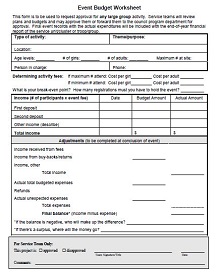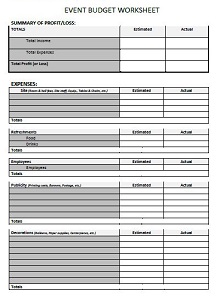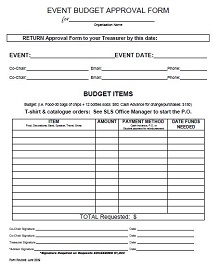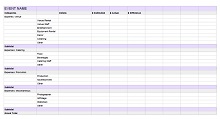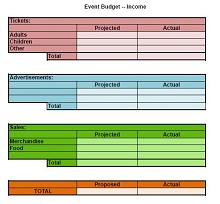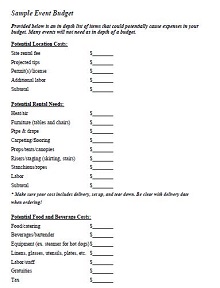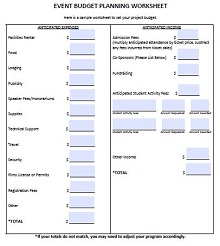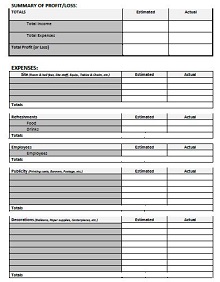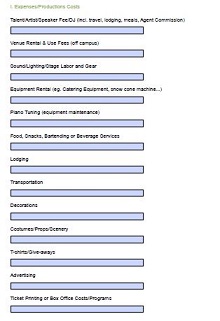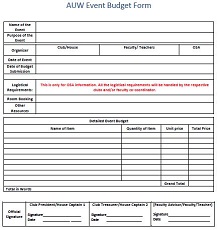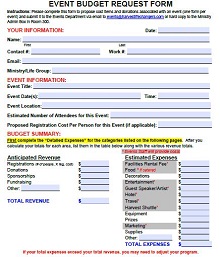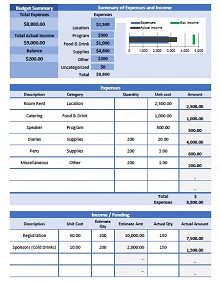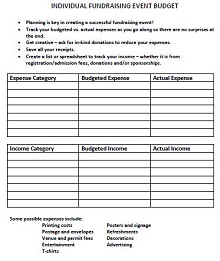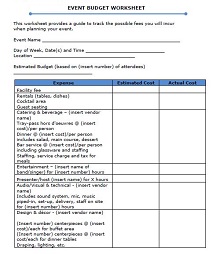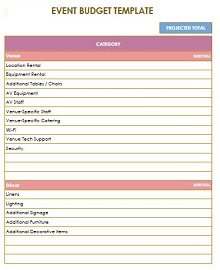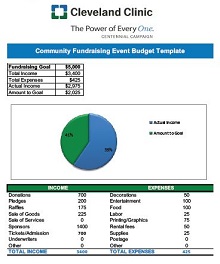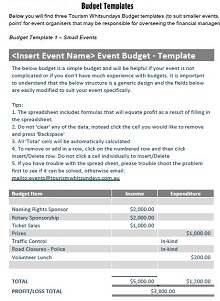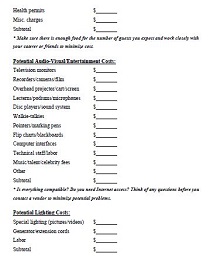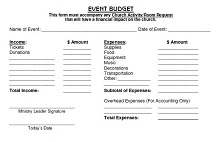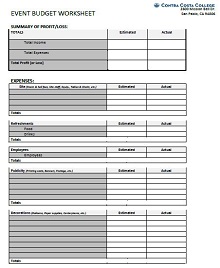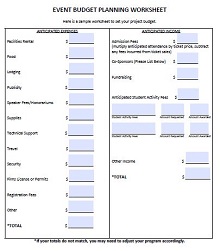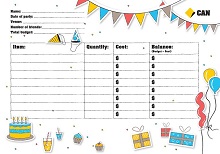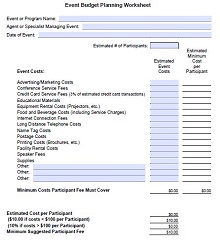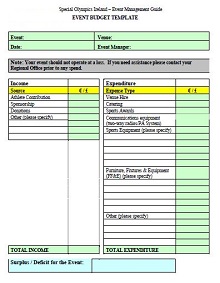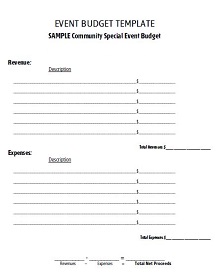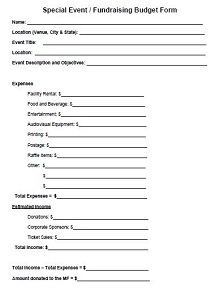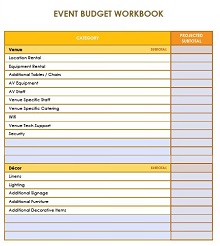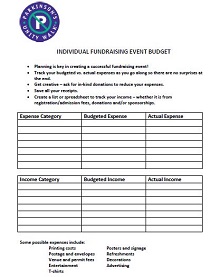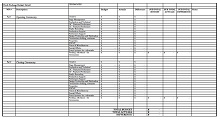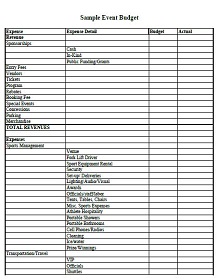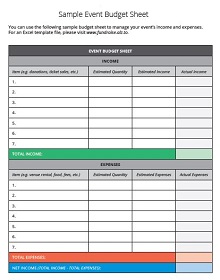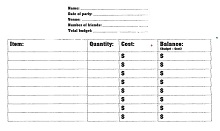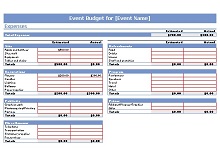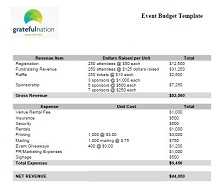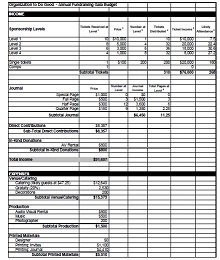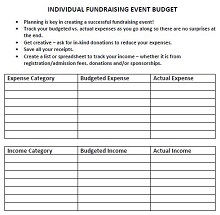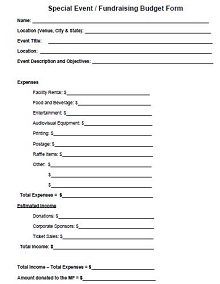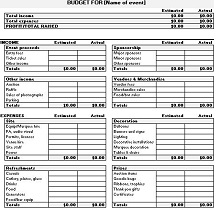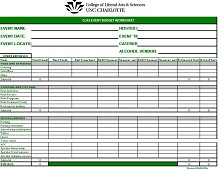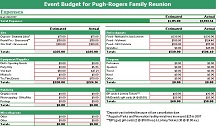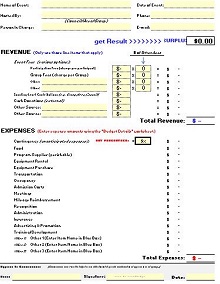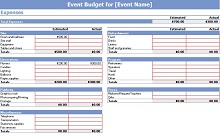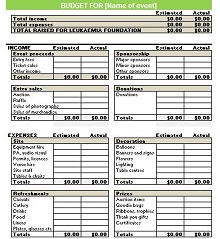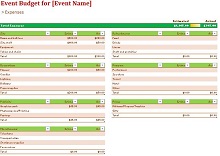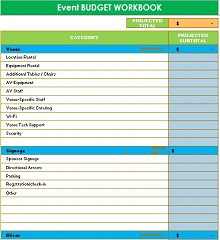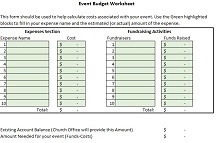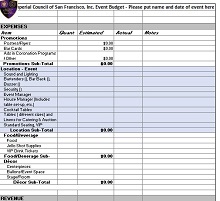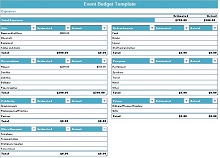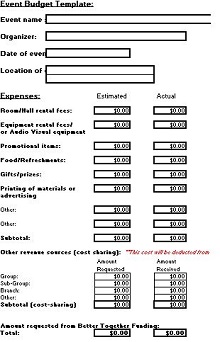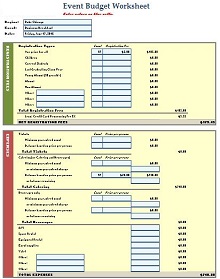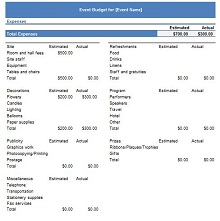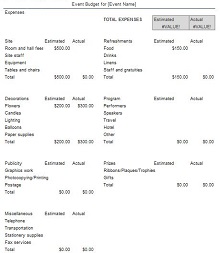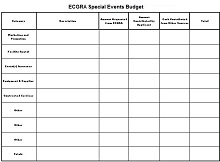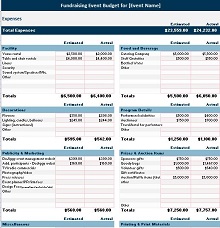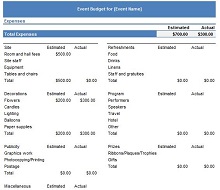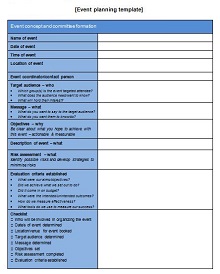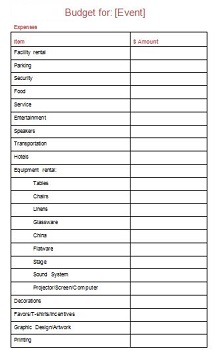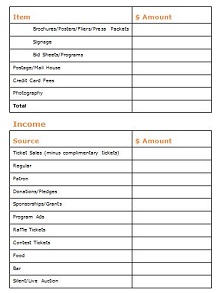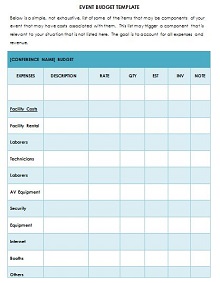60+ Free Example of Event Budget Templates – Sample PDF, XLS
Event budgets are detailed projections of the funds needed to put on an event. A comprehensive budget includes information on a variety of different cost categories like venue, catering, decorations, and entertainment. Depending on the size and complexity of the event, setting up a budget can be incredibly complicated costing estimations for materials and services required must be carefully considered and evaluated.
Creating an effective budget is key to throwing a successful event since it helps maintain control over expenses and keeps things on track financially. Additionally, having a clear plan with projections makes securing funding for events easier since potential donors can evaluate your level of organizational responsibility upfront. An accurate budget also serves as an excellent tool for tracking actual expenses against the original projected numbers so any areas that need improvement for the next event can be identified quickly and efficiently.
- Accounting Templates
- Art & Media
- Budget Templates
- Business Templates
- Calendar Templates
- Certificates
- Charts
- Education Templates
- Inventory Templates
- Invoice Templates
- Letter Templates
- Medical Templates
- Personal Templates
- Project Plan Templates
- Timesheet Templates
Download Free Event Budget Templates
What is an Event Budget?
An event budget is an important part of planning any kind of activity or gathering. It’s used to plan how much money should be spent on different aspects of the event, such as location, entertainment, food and drinks, marketing materials, and other expenses.
A well-prepared event budget allows for organized spending according to your priorities and ensures that you stay within a certain financial limit. Additionally, by tracking the costs associated with each item in the budget, you can avoid unexpected expenditures when hosting events. Having an event budget helps keep all members involved aware of their spending limits while ensuring that your overall goals are achieved in the most cost-effective manner possible.
Everything You Need to Know About Event Budget Templates
Planning an event, whether it’s a wedding, corporate gathering, or birthday bash, requires careful budgeting. The right budget template can help you keep your finances in check during the planning process and save you time and money down the line. Event budget templates come in various forms and can be used for a range of different events. In this blog post, we will discuss the different types of event budget templates available.
Cost Sheet Template
For larger-scale events, such as weddings and corporate gatherings, a cost sheet template is an essential tool for tracking expenses. Cost sheets typically include columns for itemizing the cost of each item or service needed for your event as well as columns for tracking payments and total costs. As such, they provide an easy way to keep track of your costs throughout the entire planning process. They also make it easier to compare costs between vendors so that you can get the best deal possible on essential services like catering and photography.
Event Budgets
An event budget template is helpful for those who need a more detailed breakdown of their expenses during the planning process. Event budgets typically feature categories like venue fees, catering fees, decorations costs, etc., and allow users to break down their expenses into various subcategories (i.e., food costs broken down by type). This type of template also allows users to easily track payments over time and ensure that they are staying within their overall budgeted amount.
Checklists
If you need help keeping track of all the tasks associated with planning an event then consider using an event checklist template. Checklist templates provide users with an easy way to keep track of all tasks related to their event—from booking venues to ordering supplies—and ensure that nothing falls through the cracks during the planning process. Checklists also make it easy to delegate tasks among team members so that everyone knows who is responsible for what part of the preparation process.
Key Components of an Event Budget
Creating and managing an event budget is a critical part of successful event planning. An event budget template is a helpful tool that can be used to organize the financial details of the event while maintaining organization and control over spending.
The key components of an effective event budget comprise defining exactly what is to be purchased and from where determining a timeline for payment, maintaining detailed records, and tracking actual expenses versus estimated costs. Reporting actual costs versus the estimated amount helps planners stay on top of the overall budget of the event to ensure that there are no financial surprises or cost overruns. Ultimately, creating an effective event budget and adhering to it ensures that any given event runs as smoothly as possible with no undue worry or stress.
How to Create an Event Budget Template
Planning an event is exciting, but also requires careful attention to detail. One of the most important aspects of any successful event is creating and managing a budget. A budget template helps you track all expenses related to your event and ensure that you stay within your allocated amount.
Start With A Template
There are many different types of budget templates available online, or you can create one from scratch using a spreadsheet program like Microsoft Excel. When creating a budget template, make sure that it includes all the necessary information to organize and track all costs associated with the event.
This usually includes categories such as venue rental fees, catering costs, equipment rentals, decorations, entertainment costs, and staffing expenses. It’s also important to include line items for unexpected expenses in case something comes up during the planning process or on the day of the event that needs to be addressed quickly.
Define Your Budget Parameters
When creating your budget template, it’s important to define what type of figures you want to include in each category. For example, if your goal is to have a total budget that doesn’t exceed $5,000 for an event with 50 guests, then you will need to plan accordingly.
This means that the cost per person should not exceed $100 and that other expenses, such as decorations and entertainment, should not exceed certain amounts as well. Defining these parameters ahead of time will help keep your spending in check throughout the entire planning process.
Add Up The Costs
Once you have created your template with all necessary categories and defined how much money can be spent in each area, it’s time to start adding up all the costs associated with your event. Start by gathering quotes from vendors so you know exactly how much each item will cost before entering them into your spreadsheet.
Make sure that you account for taxes and gratuity when calculating totals so there are no surprises at checkout time. Once all costs have been entered into the spreadsheet it’s easy to see where adjustments may need to be made so that you don’t go over budget before signing any contracts or making payments.

